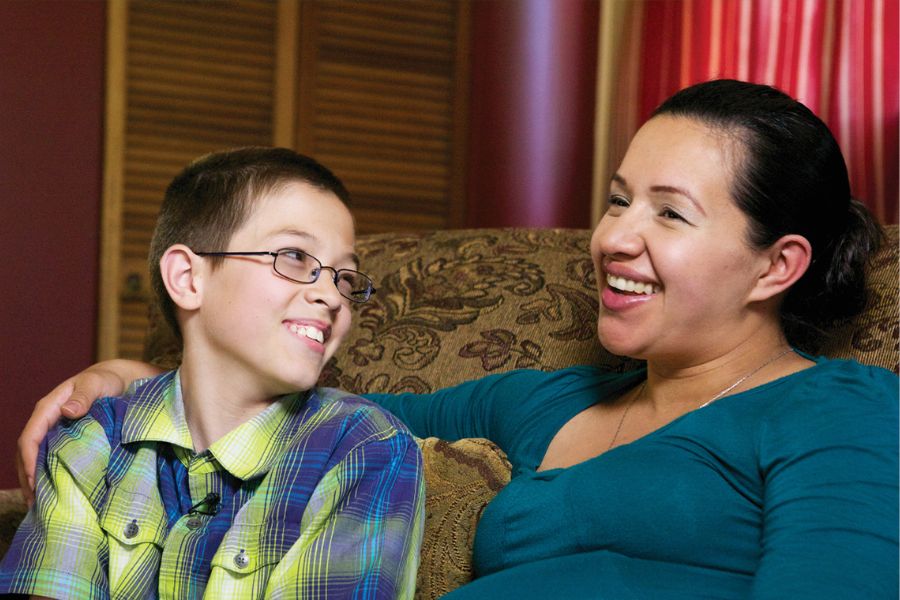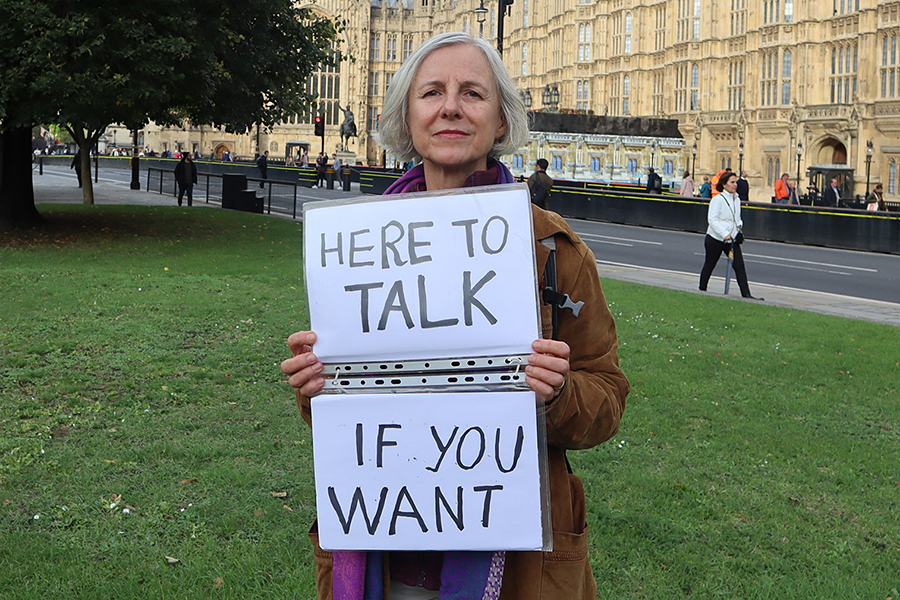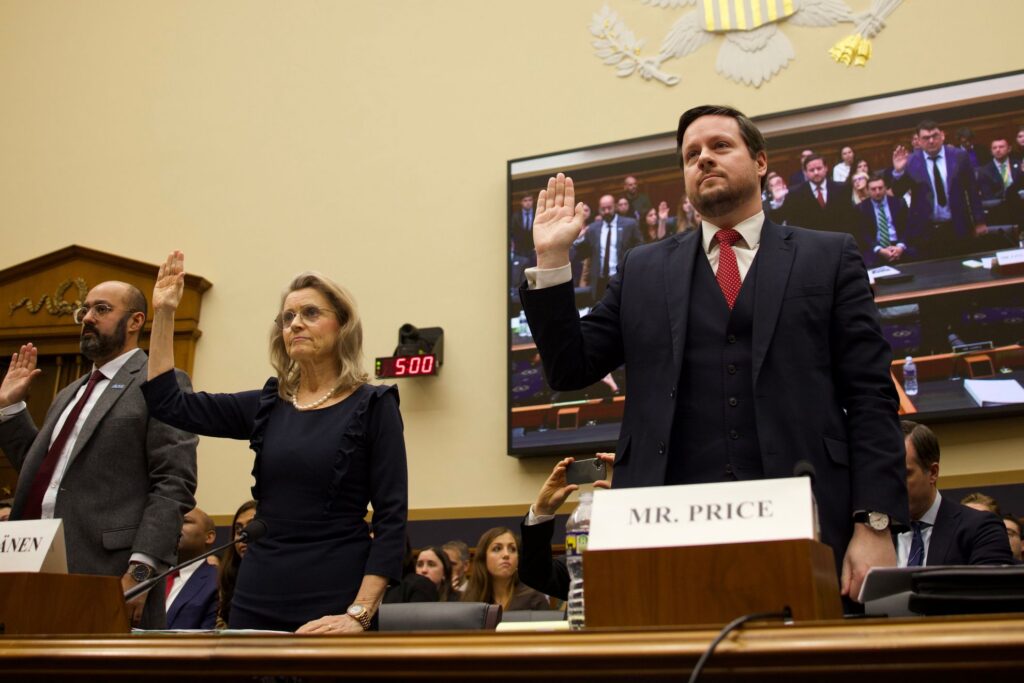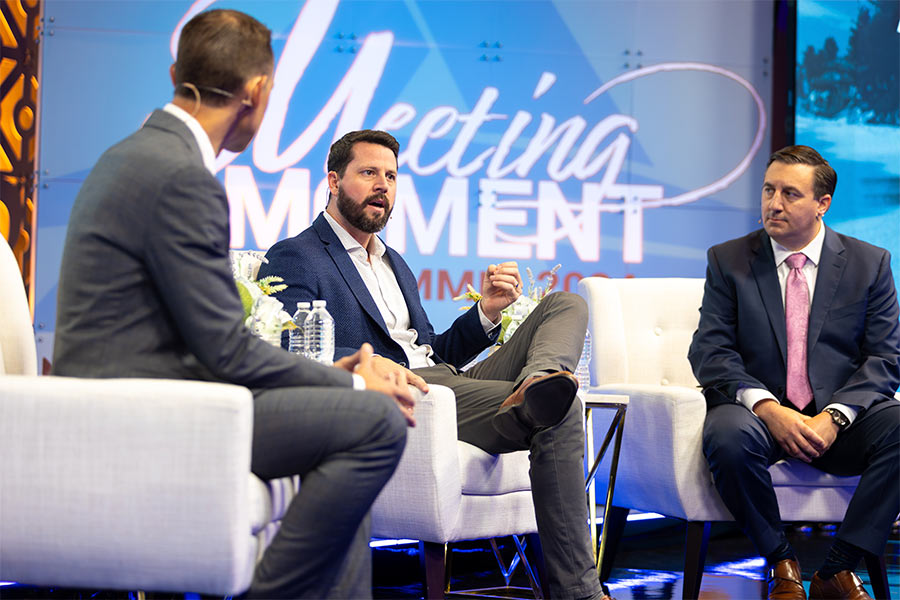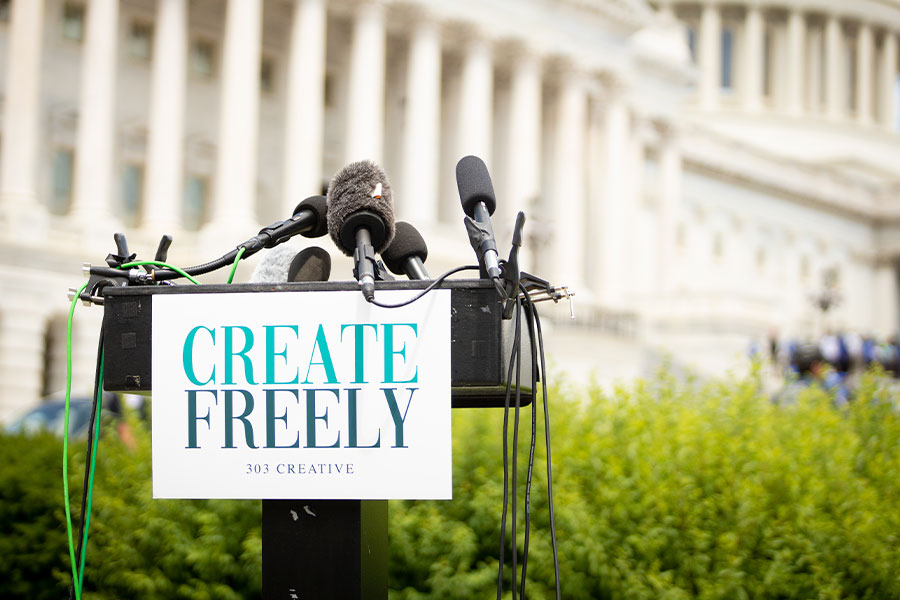
If there’s one value that marks what it means to live in a (small ‘l’) liberal society, it would probably be the freedom of speech. Whether you follow Bill O’Reilly or Bill Maher, most Americans agree that people should be free to express their views and engage in civil discourse without fear of government punishment.
Freedom of speech also includes the freedom not to speak, which is protected by the compelled speech doctrine. Yet, for years, this fundamental freedom was denied to many artists who only wanted to express messages about marriage through their art that were consistent with their beliefs.
But in June 2023, the U.S. Supreme Court ruled in the landmark case 303 Creative v. Elenis that Alliance Defending Freedom client and Colorado graphic artist Lorie Smith did not have to create speech that violates her beliefs. In the majority opinion, Justice Neil Gorsuch wrote, “As this Court has long held, the opportunity to think for ourselves and to express those thoughts freely is among our most cherished liberties and part of what keeps our Republic strong.”
The 303 Creative case set a strong precedent for free speech moving forward. While we rejoice in that victory, it can be easy to forget that these kinds of decisions don’t happen in a vacuum but are built upon numerous other cases and decisions that have come before them—even cases we don’t win.
And that was no less true of 303 Creative. What culminated in a historic win for free speech began nearly two decades prior with a photographer in Albuquerque, New Mexico.
The journey to the 303 Creative decision stands as a testament to God’s faithfulness in using the work of ADF for good and to the bravery of ADF’s clients in standing for everyone’s right to live and speak the truth.
Photographing a same-sex ‘commitment ceremony’?
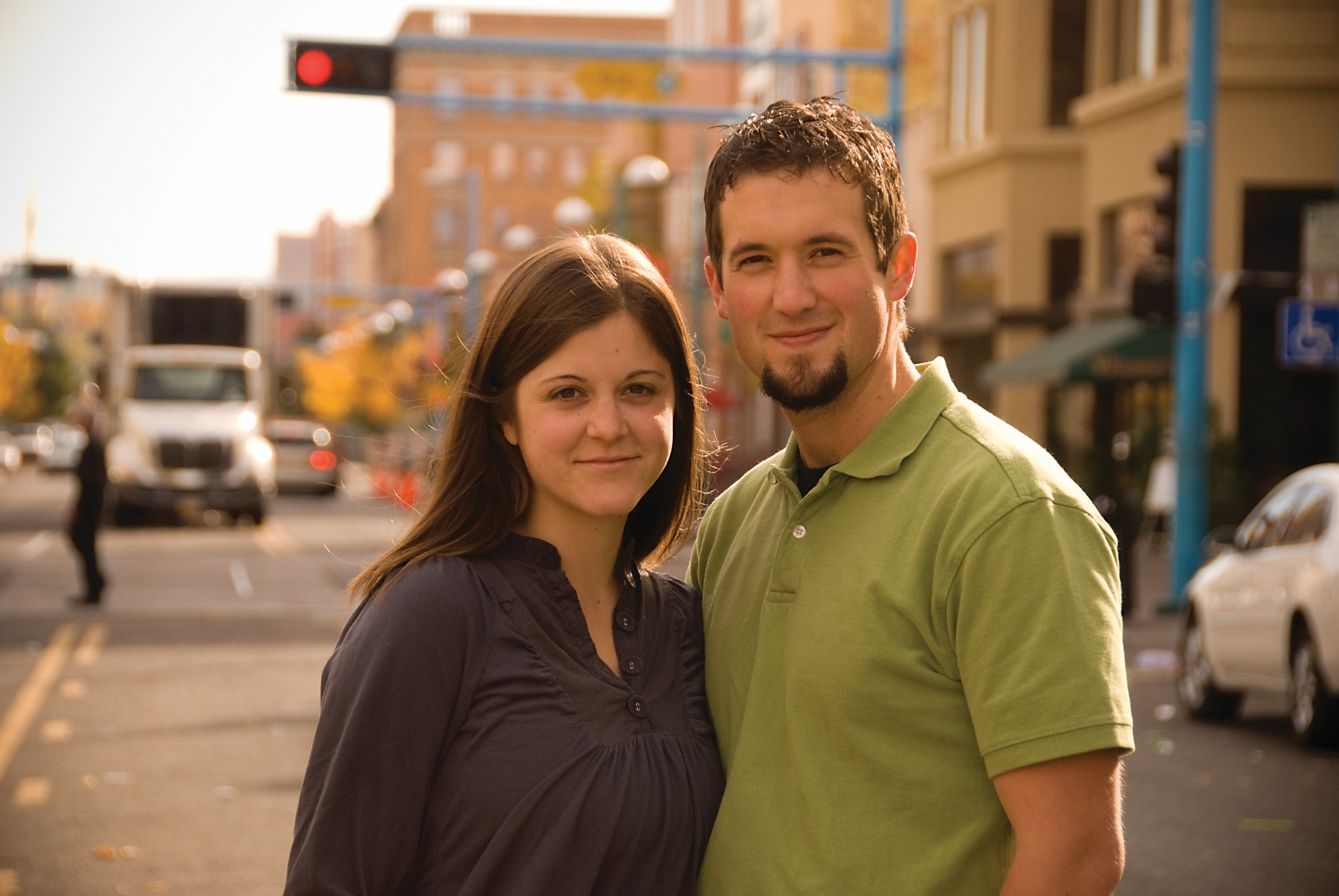
Elane Photography was a small business co-owned by husband and wife Jonathan and Elaine Huguenin. Jonathan handled the finances, while Elaine was the artist. Elaine loved creating photographs and felt most alive when she was in her element. She used a photojournalistic style to tell stories with her photos, especially stories of weddings.
But in 2006, Elaine received an email from a potential customer asking whether she would be willing to help “celebrate” a same-sex “commitment ceremony.” Elaine politely declined, explaining that she cannot “photograph same-sex weddings,” and thanked the requester for her interest.
Jon and Elaine thought this was the end of the matter until they received papers from the state of New Mexico explaining that a complaint of “sexual orientation discrimination” had been filed against their company by the potential customer.
These charges could not have been further from the truth. For Jonathan and Elaine, it wasn’t about the person making the request. The Huguenins could not in good conscience create photographs that promote messages they disagreed with—that it is a good thing to redefine marriage to celebrate same-sex commitment ceremonies.
The same has been true for all of ADF’s clients. It’s never about who is making the request, but what message they are being asked to express with their art.
Unfortunately, the New Mexico Supreme Court ruled against the Huguenins, and the U.S. Supreme Court declined to review the state supreme court’s decision. In a chilling concurring opinion from the New Mexico Supreme Court, one of the justices wrote that for the Huguenins, violating their conscience to continue their photography business is “the price of citizenship.”
More artists under threat
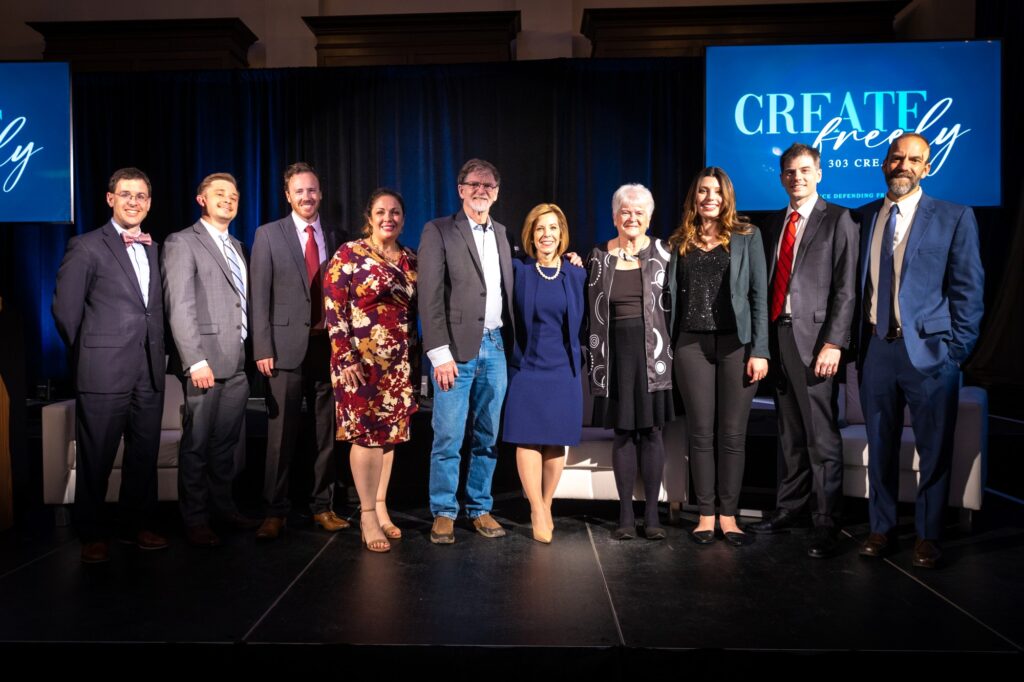
The years 2012 and 2013 saw the next round of lawsuits brought against ADF clients.
In March 2012, Blaine Adamson and his printing business, Hands On Originals, came under attack when they declined to create T-shirts that would promote a pride festival hosted by the Gay and Lesbian Services Organization (GLSO). Conveying a message that promotes sexual activity outside of a marriage between a man and a woman would violate Blaine’s Christian beliefs. So he could not in good conscience create T-shirts for the GLSO’s event.
Blaine nevertheless offered to connect the GLSO to another printer who would create the shirts for the same price that he would have charged. In response, however, the GLSO’s president filed a complaint with the Lexington-Fayette Urban County Human Rights Commission alleging “sexual orientation discrimination.”
Similarly, in July 2012, two men came into Masterpiece Cakeshop in Denver, Colorado requesting that cake artist Jack Phillips create a custom wedding cake celebrating a same-sex wedding. In a brief exchange, Jack politely declined the request, saying he could not create custom cakes celebrating same-sex weddings, but he offered them other items he would provide to any other customer. In response, the two men later filed a complaint with the Colorado Civil Rights Division.
And in April 2013, Washington Attorney General Bob Ferguson sued floral artist Barronelle Stutzman after she declined to create custom floral arrangements celebrating the same-sex wedding of a friend and longtime customer.
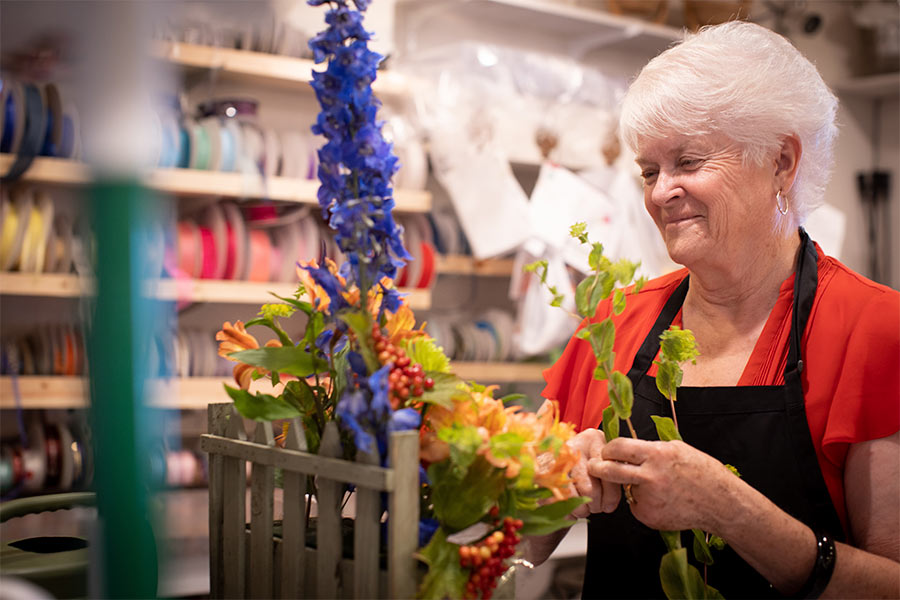
Like the Huguenins before them, Blaine, Jack, and Barronelle could not use their artistic skills to express messages about marriage that violated their deeply held Christian beliefs. And like the Huguenins’ case, Blaine, Jack, and Barronelle all faced initial legal setbacks. But unlike the Huguenins, for many of these cases, the legal tide eventually began to shift in favor of protecting free speech.
Going on offense
As time progressed, more states began amending their public-accommodation laws to forbid distinctions based on “sexual orientation” and “gender identity,” and interpreting these laws to require professionals to express the government’s views on these issues. At their core, public-accommodation laws are meant to ensure that people have access to the economic marketplace. But state governments began enlarging and misusing their public-accommodation laws to target artists like Elaine, Jack, Blaine, and Barronelle for so-called “discrimination” when there was nothing of the sort.
Again, all these artists decline to create art based on what message the art conveys, not who requests it. Public-accommodation laws were never supposed to compel speech or empower the government to eliminate ideas it dislikes from the public square.
This targeting of ordinary Americans was emboldened by the Supreme Court’s Obergefell v. Hodges decision in 2015, which wrongly held in a 5-4 ruling that the 14th Amendment requires all states to license and recognize unions between two people of the same sex as “marriages.”
In light of these developments, ADF filed a series of pre-enforcement challenges. Pre-enforcement challenges allow citizens to challenge unjust laws before those laws are used against them. Even if the law has not yet been enforced against an individual, courts allow pre-enforcement challenges when a law could potentially violate a citizen’s rights in the present or pose a substantial or impending risk of injury in the future.
Pre-enforcement challenges have been a hallmark of civil-rights litigation for decades, helping Americans defend their constitutional rights without risking crippling fines or jail time. So, instead of ADF’s clients needing to wait until a lawsuit was brought against them and play defense, ADF was able to go on offense and proactively work to protect every American’s right to free speech.
Flipping the script
In pre-enforcement challenges, ADF began defending the rights of several other artists across the country.
Carl and Angel Larsen are filmmakers in Minnesota. Their work focused on telling stories of marriages and helping the culture understand the beauty of marriage as God designed it. But Minnesota interpreted state law to mean that if the Larsens told stories about marriage that are consistent with their religious beliefs, they also had to tell stories about marriage that violated those beliefs. Of course, this completely contradicted the message that the Larsens hoped to express through these films. ADF filed a pre-enforcement challenge on behalf of the Larsens in December 2016.
In Arizona, Joanna Duka and Breanna Koski created custom-designed artwork using upscale hand-painting, hand-lettering, and calligraphy. The two young women founded and co-owned a company called Brush & Nib Studio. But a Phoenix city code required them to create artwork promoting messages and events that go against their faith, including same-sex marriages. And it didn’t stop there. The law even prohibited Joanna and Breanna from explaining that they could only create artwork consistent with their artistic and religious beliefs. ADF filed a pre-enforcement challenge against the city of Phoenix in May 2016.

Similarly, in Wisconsin, ADF filed a pre-enforcement challenge on behalf of photographer Amy Lawson in March 2017. (She received a declaratory judgment in her favor that August.)
It was also around this same time (September 2016) that ADF filed its pre-enforcement challenge in Colorado on behalf of Lorie Smith of 303 Creative.
Like prior cases, many of these clients faced legal hurdles at first, and lower courts allowed state and city governments to violate their free speech rights.
But then, the first seismic shift happened in 2018: Jack Phillips won at the U.S. Supreme Court in Masterpiece Cakeshop v. Colorado Civil Rights Commission.
The Masterpiece decision
On June 4, 2018, the High Court upheld Jack Phillips’s freedom 7-2. The ruling reversed Colorado’s decision to punish Jack for living and working consistent with his religious beliefs about marriage. The Colorado Civil Rights Commission’s hostility toward Jack and his faith was so egregious that Justice Anthony Kennedy wrote in the majority opinion that “the record here demonstrates that the Commission’s consideration of Phillips’ case was neither tolerant nor respectful of his religious beliefs.”
After the Masterpiece decision, there were numerous other victories defending the free speech and conscience rights of artists:
- Carl and Angel Larsen received a favorable ruling from the U.S. Court of Appeals for the Eighth Circuit in August 2019.
- The Arizona Supreme Court upheld the free speech rights of Joanna Duka and Breanna Koski in September 2019.
- Blaine Adamson won his case at the Kentucky Supreme Court in October 2019.
At the same time, while the Masterpiece decision made clear that the government must respect and show tolerance for people of faith and their religious beliefs, it did not address the free-speech question of whether public-accommodation laws could be used to compel artists to express messages that violate their consciences.
As such, some governments continued to violate the free speech rights of artists. In addition to the cases mentioned above, ADF brought pre-enforcement challenges on behalf of photographers from Kentucky, Virginia, and New York.
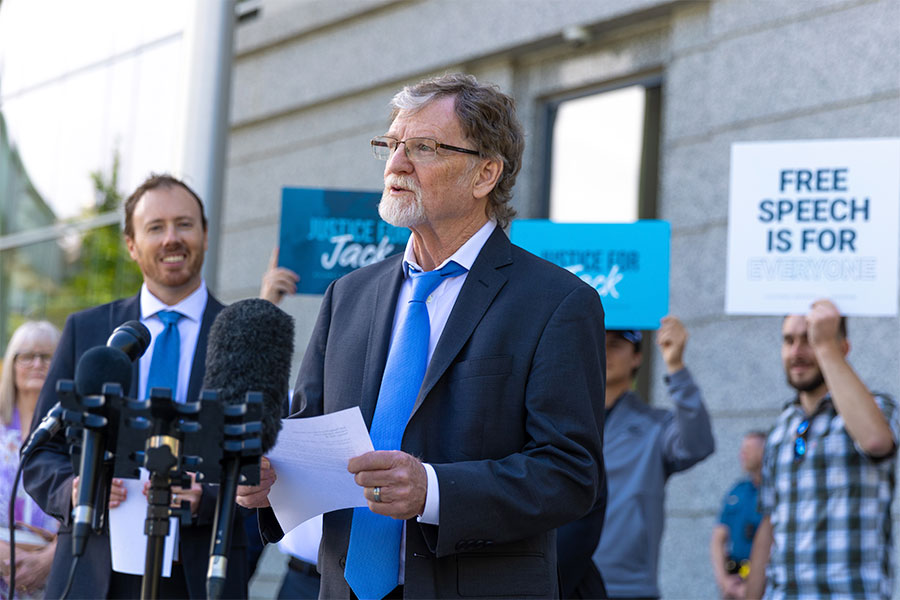
Jack Phillips himself has been subject to two additional lawsuits, both arising from his decision not to create a custom cake celebrating and symbolizing a “gender transition.” The second lawsuit he won in March 2019. Jack won his third case in 2024 when the Colorado Supreme Court dismissed a lawsuit brought against him.
During this season after the Masterpiece decision, Lorie Smith’s case also took an unexpected turn. In 2021, the U.S. Court of Appeals for the 10th Circuit ruled in Colorado’s favor. Notably, both the 10th Circuit and Colorado officials acknowledged that Lorie serves people from all backgrounds—including those who identify as LGBT. Both also conceded that her graphic art and websites constitute speech and expression and are protected by the First Amendment.
Yet the 10th Circuit ruled 2-1 that Colorado has every right to compel Lorie’s speech, effectively eliminating views like Lorie’s, silencing her expression, and forcing Lorie and others like her to express views they do not agree with. Under the 10th Circuit’s reasoning, the government could seemingly override anyone’s First Amendment right to free speech, allowing no one to disagree.
“It seems we have moved from ‘live and let live’ to ‘you can’t say that,’” wrote Chief Judge Timothy Tymkovich in a blistering dissent.
In September 2021, ADF attorneys filed an appeal of that decision, and in February 2022, the Supreme Court announced that it would hear Lorie’s case. That December, ADF CEO, President, and Chief Counsel Kristen Waggoner represented Lorie during oral arguments at the Supreme Court.
A victory for free speech
On June 30, 2023, the Supreme Court issued a landmark ruling in Lorie Smith’s favor, protecting the right to free speech for all Americans.
As Kristen Waggoner explained, “The U.S. Supreme Court rightly reaffirmed that the government can’t force Americans to say things they don’t believe. The court reiterated that it’s unconstitutional for the state to eliminate from the public square ideas it dislikes, including the belief that marriage is the union of husband and wife … Disagreement isn’t discrimination, and the government can’t mislabel speech as discrimination to censor it.”
At long last, Lorie’s legal journey came to an end, leaving a legacy of free speech for the next generation.

The legal battles for free speech continue
Like the Masterpiece decision in 2018, the 303 Creative decision in 2023 has led to positive free speech outcomes for numerous ADF clients.
- In November 2023, government officials in Virginia agreed to settle the case of photographer Bob Updegrove. Bob is now free to continue photographing weddings in accordance with his beliefs.
- In December 2023, the Virginia Supreme Court reinstated the case of teacher Peter Vlaming, who was fired for declining to use pronouns that did not correspond to a student’s sex. The Virginia Supreme Court affirmed that Virginians have a right not to be forced to express messages that violate their beliefs. The case then reached a favorable settlement in which the school board agreed to pay $575,000 in damages and attorneys’ fees, clear Vlaming’s firing from his record, and—separate from the settlement agreement—change its policies to respect free speech and parental rights.
- In July 2024, the 2nd Circuit ruled in favor of New York photographer and blogger Emilee Carpenter by allowing her case to continue after a lower court had dismissed it. This led to a settlement in July 2025, where New York officials agreed that they would not violate Emilee’s First Amendment rights and would pay $225,000 in attorneys’ fees.
- In September 2025, a district court confirmed its prior ruling protecting the free speech of photographer Chelsey Nelson against the city of Louisville.
These victories, and the many others before them, are a testament to God’s faithfulness. Even when the legal, cultural, or political circumstances might look bleak to us, God is always able to work things together for good (Romans 8:28). And on this journey, we can most certainly see that He has worked things together for good—even our losses—and will continue doing so.

-150x150.jpg)
-1024x1024.jpg)
